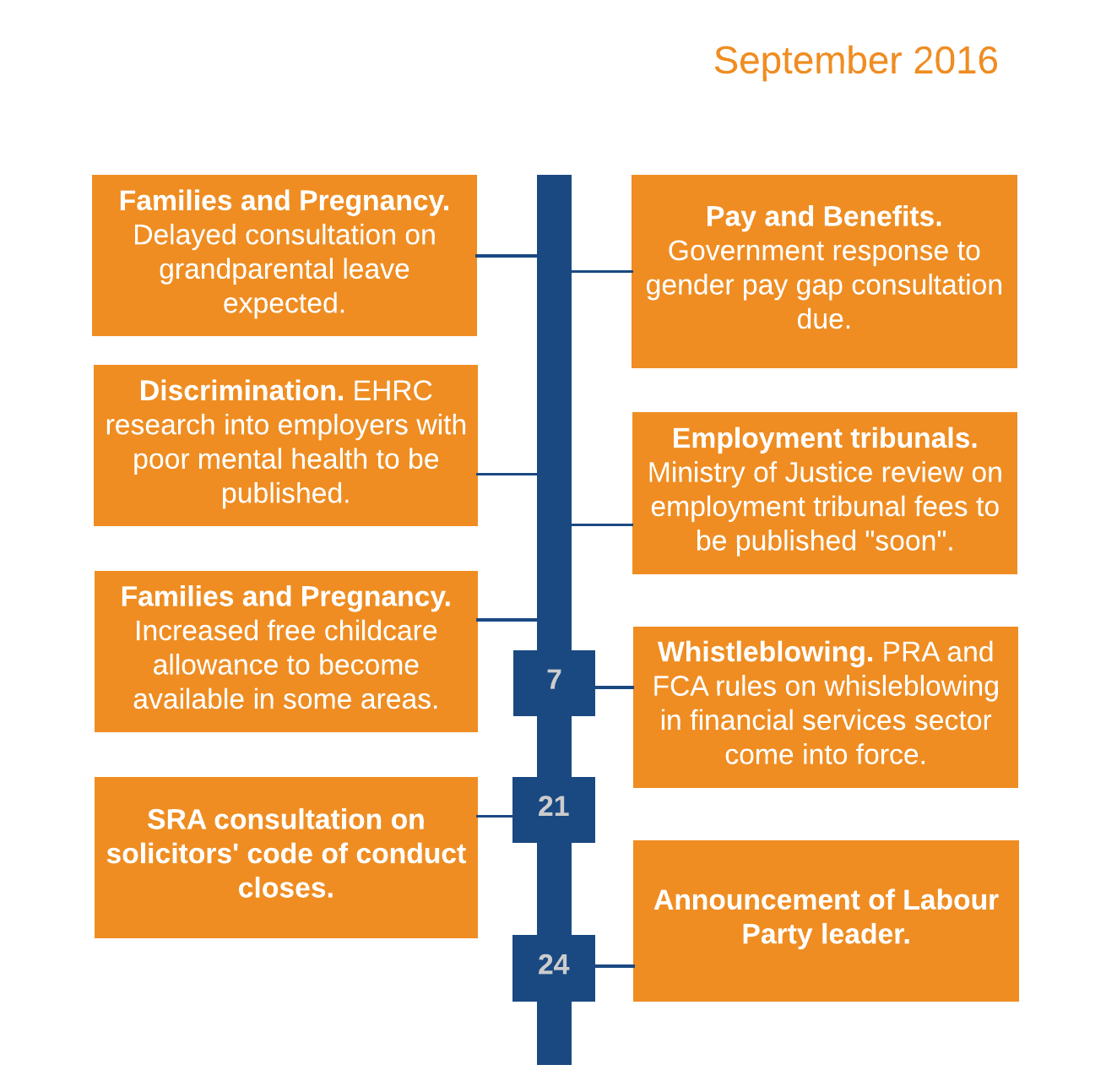Traditionally the quietest month of the year for legal developments, August has nevertheless been busy for employment law news.
The ECJ has held that EU discrimination laws do not protect a job applicant who applies for a job purely seeking compensation. While sham applications in order to bring claims do occasionally occur, they are rare. Employers should be aware of raising any suspicion that an applicant is not genuine unless there is compelling evidence to show otherwise.
There were several interesting decisions at the EAT. It overturned a tribunal’s decision to strike out a whistleblowing claim where there were factual disputes, and held that tribunals have the power to increase injury to feelings awards in line with inflation. More controversially, rule 12(1)(b) of the ET rules, which provides for a claim to be struck out where it is in a form which “cannot sensibly be responded to”, has been held to be ultra vires because it denies the claimant a hearing.
Section 65 of the Criminal Justice and Courts Act 2015 has been brought into force, meaning that the EAT now has the power to allow a leapfrog appeal directly to the Supreme Court.
Although the publication of the gender pay gap reporting regulations has been delayed, section 78 of the Equality Act 2010, under which those regulations will eventually be made, was brought into force on 22 August 2016.
HMRC published a consultation on restricting salary sacrifice and the government has responded to the consultation on simplifying tax and NICs on termination payments.
In the news this month, the Labour leadership candidates set out their employment law proposals, Public Concern at Work published a five year whistleblowing review, the Women and Equalities Select Committee found that Muslims suffer significant inequalities in employment, a TUC survey found 52% of women have been sexually harassed at work, Citizens Advice published a report on the disability employment gap, the EHRC reported that employees with poor mental health earn 42% less than their colleagues, the High Pay Centre annual survey revealed a 10% pay increase for top CEOs, more national minimum wage offenders were named and shamed, and the number of workers taking strike action hit a new low in 2015.
In our blog, Georgia Hicks analysed the implications of issue estoppel in employment cases, and Jillian Paton explored the enforceability of a costs indemnity clause aimed at preventing workers from challenging their self-employed status.
Next month
Key developments to look out for in September 2016.

For recent and forthcoming developments, don’t forget What to expect in employment law, Case tracker and Legislation tracker.



